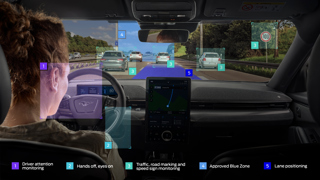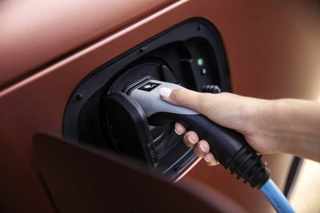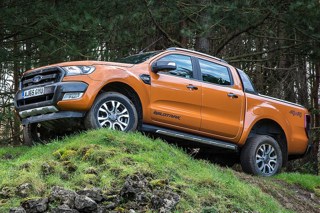Nearly 60% of automotive retailers are urging more support from motor finance providers to retail electric vehicles (EVs).
Affordable monthly payments are also a driving factor for EV adoption for consumers, according to research by JATO.
May’s Startline Used Car Tracker reports that 41% say their lenders are less keen to finance EVs, 10% want higher deposits from buyers and 5% charge higher interest rates. A further 5% say their lenders simply won’t touch EVs at all.
Just 10% say that their motor finance providers are happy to finance EVs and none of those surveyed believe that their lenders treated EVs the same as petrol and diesel cars.
JATO Dynamics’ latest consumer research: “Driving Decisions with Data: Global Automotive Consumer Finance Insights" also highlights that 80% of respondents saying the option to pay monthly would make it more likely for them to choose an EV.
According to the report, one in five (21%) are set to buy an EV next year, while a further 27% are thinking about buying an EV.
With good battery range (51%) cited as the top reason that would encourage respondents to buy an EV, followed by convenient recharging (45%), monthly finance options will allow consumers to try before they buy – with the potential to ease widespread concern over range, and charging availability.
JATO’s survey was conducted with over 1,000 consumers who have purchased a new car in the last year, and/or are planning to purchase one in the next year.
Paul Burgess, chief executive at Startline Motor Finance, said: “EV finance is something of a thorny issue.
“Purchase prices of used EVs tend to be around 30% higher, model for model, than comparable petrol and diesel cars, so getting the motor finance element right is crucial to their affordability for car buyers.
“However, motor finance companies are in a tricky position. The residual values of EVs are among the most important metrics when it comes to making a lending decision but they have been extremely unpredictable over the last year, with falls of 25% not unknown on popular models. This makes financing EVs quite difficult.
“Most dealers understand these background problems but this doesn’t change the fact that, in a retail environment, dealers are having trouble finding finance for EVs which, of course, makes them less likely to offer these cars for sale at exactly the point in time when they are probably looking to start adding them to their stock mix.”
Burgess added that the used EV market will mature and residual values will become more stable.
He said: "Certainly, we are in a position as a company where we have held back from financing EVs because of the volatility of the market but are planning to change our position later this year, beginning to add them our books.”
The Startline Used Car Tracker is compiled monthly for Startline Motor Finance by APD Global Research, well-known in the motor industry for their business intelligence reporting and customer experience programs. This time, 302 consumers and 59 dealers were questioned.
Alternative ownership options
Mike Bennett, product manager at JATO Dynamics, said the skyrocketing EV market should be opening a world of opportunities for original equipment manufacturers (OEMs) and dealers.
But with any major industry transformation, these opportunities don’t come without challenges.
He said: “Alongside finance options, other factors – such as the reliability of EV charging – will play a significant role in the mass adoption as more consumers look to try EVs.”
Consumers are also increasingly interested in alternative ownership options.
In the next two years, more than half of respondents to JATO’s survey (51%) plan to use a shared ownership model, with half of those citing the reduced cost as their motivation.
Higher-quality vehicles (34%) and lower prices (33%) are significant aspects driving the growth in appetite for shared mobility services, while location – with 73% of those living in city centres wanting shared ownership in comparison to just 19% in rural areas – can also be seen as a spurring factor.
Maintaining finance relationships
Exploring what customers are likely to do at the end of a finance agreement, JATO’s research found that for 37% of people, the end goal would be to pay off the agreement to own the car, while 22% would swap to a different agreement on a new car and 18% would enter into a new agreement on the same car.
Bennett added: “How people purchase and pay for cars is changing, but our most interesting finding was that consumers across all regions want more transparency in choosing finance contracts.
“Increasing demand for alternative ownership models could disrupt the market and offer new opportunities for OEMs and dealers, but only if they focus their efforts on education.
“From finance types and contract lengths to payment terms and mileage options, consumers need to easily access and understand this information before they’ll be ready to embrace this as an alternative way to purchase their vehicles."





















Login to comment
Comments
No comments have been made yet.